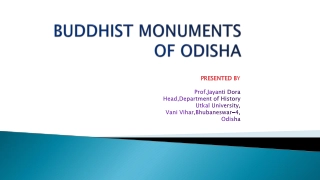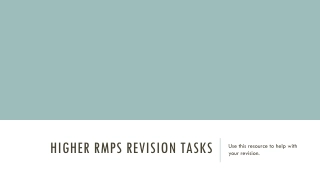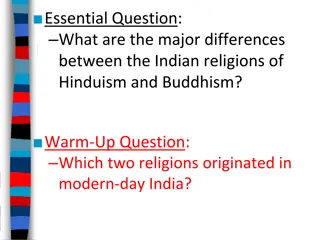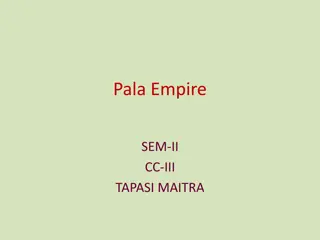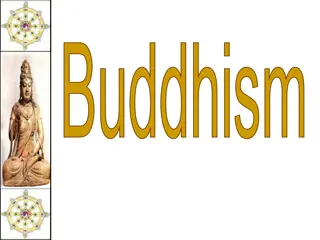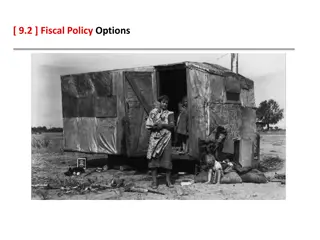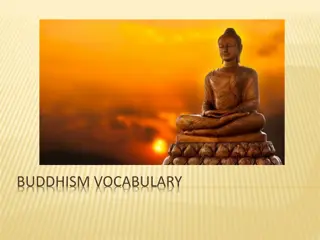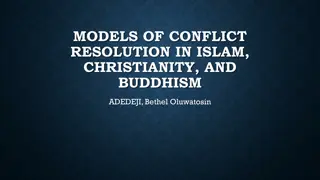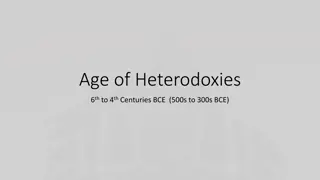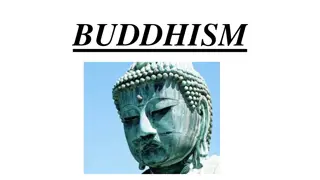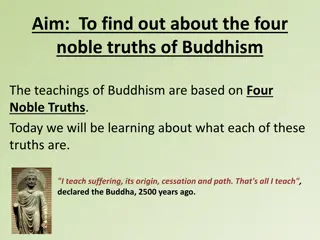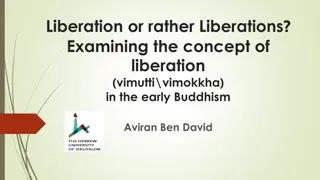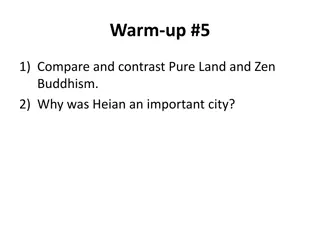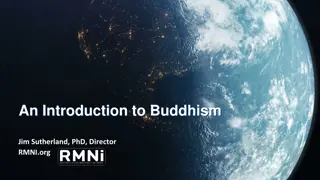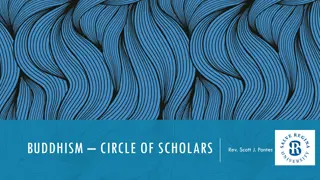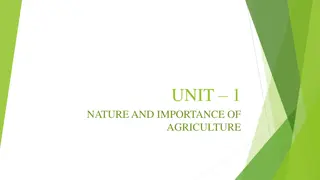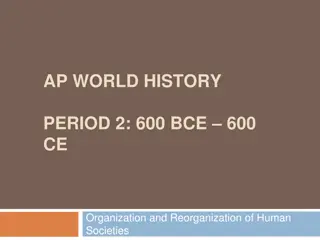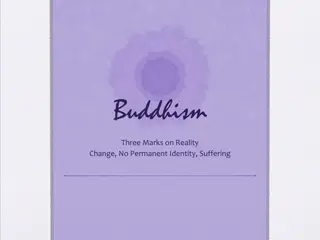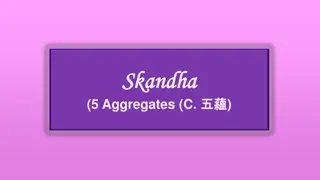
Understanding Easterlin Paradox in Buddhist Economics
Explore the Easterlin Paradox in relation to income and happiness in Buddhist economics. Discover why an increase in income doesn't necessarily lead to greater happiness according to Richard Easterlin's research.
Uploaded on | 3 Views
Download Presentation

Please find below an Image/Link to download the presentation.
The content on the website is provided AS IS for your information and personal use only. It may not be sold, licensed, or shared on other websites without obtaining consent from the author. If you encounter any issues during the download, it is possible that the publisher has removed the file from their server.
You are allowed to download the files provided on this website for personal or commercial use, subject to the condition that they are used lawfully. All files are the property of their respective owners.
The content on the website is provided AS IS for your information and personal use only. It may not be sold, licensed, or shared on other websites without obtaining consent from the author.
E N D
Presentation Transcript
Lecture 7: Buddhist Economics and Interdependence of each other In the last lecture, we discussed Buddhist economic idea of interdependence of each other; this means that in Buddhist economics, the role of economics and a successful economy include both economic growth and the consequent happiness of human beings; to achieve such a goal, people need to understand and accept that human beings are interconnected and therefore a fair and more equal economic system is essential; in this lecture, we shall elaborate further on the issue of interdependence and the economic implication of it; Table of content: Income and happiness Material wellbeing Income inequality and its consequence Buddhist alternative Summary and facts-check Exercises
Income and happiness Generally, for ordinary people, income would enable people to buy daily necessities which are otherwise not available for them; as you may be aware by now, if a country s or region s economic growth is solid and robust, employment would be good; working people not only would have a job, but also get paid with decent wages or salaries; at least, they should be paid enough to get what they need in a daily basis: food, shelter, clothes and others; So it would be naturally reasonable to assume that as the economy continues to grow and perform well, people s income would also increase, thus improve their life and happiness; But Richard Easterlin (Easterlin Paradox, 1974) did a research about the corollary of people s income and their happiness; his findings suggest that there is no corollary between income increase and improved happiness; in fact, even when income increases, people s sense of happiness tends to remain the same; please read the article by Richard Easterlin and find the reasons for the seemingly paradoxical outcome;
Easterlin Paradox: Income increase and happiness remains stable; below is just a very simplified summary of what Richard Easterlin discovered from his research; but the conclusion seems to be surprising, for unlike the reasonable expectation (increased income and improved happiness), as the income increased, people s sense of happiness remain almost the same; Increased income and stable Happiness 5 4.5 4.5 4 3.5 3.5 3 3 2.5 2.45 2.42 2.41 2.4 2.5 2 1.5 1 0.5 0 Year One Year Two Year Three Year Five Income Hapiness
GDP, national income and improvement of living standard As a Buddhist, and as Buddhist monks, we know that happiness is really difficult to define, in particular to those whose life goals are different; for example, for some, spiritual pursuit is the ultimate goal like the Buddha, while for others, material wellbeing is the priority; but in a modern world, material wellbeing is essential; For instance, in the wealthy countries, such as G7 countries or in advanced economies, people could have at least a basic college education, a good paid job, some form of leisure, and some basic medical care; on the other hand, in the poor countries, basic education may mean just literacy and if lucky, half of the girls there might be able to read while the other half may only be able to write their own names and do some basic counting; So in a sense, national income is an important indicator which would suggest that in economics, a basic income and comparative fairness of economic distribution are the basic conditions for people to have a decent standard of living; this in turn is the condition for the meaning and happiness of life;
The problem with GDP, GNP and GDP per capital In macro economics, GDP is an important indicator of the economic performance of a region or country; the acronym stands for Gross Domestic Production; in other words, it is the overall value of goods and services a country or region produced per annum; Then the acronym GNP stands for Gross National Production, which is the total goods and services produced domestically and investments in foreign countries; Finally, if you read report from Forbes, World Bank, or the IMF (International Monetary Fund), you are told the GDP per capital = in theory, the GDP divided equally to every person in the country; but the figures can be very misleading; For instance, as of 2019, India s GDP is about 3,000,000 million USD (3 trillion USD), more than 9 times bigger than Singapore s (362,818 million USD); but because the disparity in population, India s GDP per capital (per person) is about 2,104 USD, more than 32 times smaller than Singapore s, which is about 65,233; Does that means every one in Singapore gets more than 60,000 USD (more than 80,000 Singapore dollars) every year? Certainly not; so all those figures are not very helpful in terms of people s daily life;
Below is the increasing disproportionate disparity of distribution of wealth in the world; please notice that about 56% of world population only receives less than 2% world wealth; but because of poverty and economic disadvantage, many people in this category actually possess almost nothing except some daily necessities; and also do not forget those who are below poverty line they may go to bed without food; Distribution of total world wealth (in US dollar) as of 2019 1% world richest people (those millionaires with more than 1 million) owned 44% world wealth 11% world population (individuals with 100,000 USD or more) owned 82.8% of world wealth 56% of world population (with less than 10,000) owned less than 2% world wealth
Twin-welfare according to the Buddha: in Buddhist tradition, as we said, economic wellbeing and spiritual welfare are both considered as important; sometimes those two aspects are even known as ubhayattha or twin-welfare: the worldly and the other-worldly; so when a lay person named Dighajanu asked the Buddha about a good life according to Buddhism, the Buddha preached 8 factors of good life of material world and spiritual realm as below: Worldly happiness Spiritual happiness Bliss of vigour; bliss of protection Confidence and morality Good friendship and balanced life Charity and wisdom
Material well-being: Clair Brown suggests that material well-being is the basis of a country s economic wellbeing and wellbeing of its people; with 3 categories of family consumption, the basic necessities are the foundation of wellbeing; the second level variety or comforts is crucial, because by achieving this level, people tend to be happy and remain here without bothering too much about the third level status/luxury; Basic necessities Varity/ comforts Status/luxuries
Income inequality and its economic impact: because of the income increase, people s quality of life would be improved; for instance, in the previous slides, we illustrated that when basic necessities are well provided, people would aspire for the 2ndlevel of variety, i.e. they want some basic comforts such as enough rooms for the members of the family and sufficient education and medical care; but with the increasing level of the income inequality, the second level of people s life may become insecure or even negatively affected; When the income inequality gap widens or increases The quality of life and happiness deteriorates and declines
Relative income: here, income does not mean that we can spend our income with a simple budget but a budget comes only after we considered pros and cons relative to other factors and families; here we can compare with the Buddha s suggestion for the disposal of personal income; Gross income (larger) Net income (smaller) Relative income (reduced smaller) This is the income that the boss or the employer paid to his employee s back account, some time called income before tax This is the income after the employee paid tax, so it is called after tax income; or take- home or disposable income, because it is he/she took home and at his/her disposal; This is the income that goes through yet some more calculation when he or she make the budget and shopping list
Problems with market economics As we mentioned, economic incentives may be necessary if we want an efficient and fair economic system; but modern market system is inflicted with some serious problems; for example, a famous movie star may work for an entertainment company and generate a lot of revenue for his/her employers/shareholders; he/she would be generous rewards so as to incentivized to perform better and attract more attention of the world; But compared with a skillful doctor, the movie star s contribution to the society can be minimum; yet a doctor, whose contribution is more than apparent and much more substantial than the movie star, may be paid annually only 10 or 20 % of what the movie star earned with one movie, just for a few weeks appearance (not much real work); So if that kind of incentives or market system are implemented, then the gap between rich and poor would be widened while the real economic growth may not be sustainable in the long run; in short term, a lot of social problems, such as poverty would occur;
Problems with market economic system: some observes that market system is good because it will regulate itself; but when it makes mistakes, some people would take advantage of those mistakes and benefit from them, thus making other people miserable; take for example the economic incentive; below shows the difference; Economic incentive Cooperative Market economic model/beneficial to all incentive/beneficial to the companies Rewards for hardworking people and contributions to the improvement of general economies Rewards according to market value without considering about real contributions Improves efficiency and overall economic performance
Problem with the cooperative incentives: even within the cooperative incentives, as Clair Brown pointed out, some CEOs were highly paid, although they were less productive and made less contributions to the companies; they were highly paid only because they were in a position to be evaluated as such; Cooperative incentives Senior CEOs are highly paid because they are in senior positions CEOs paid generously but deserves more Modestly performance and hardworking, contribution also modest Hardworking and productive Considerable contributions to the companies
Buddhist alternative In the famous Sigalovada-sutta, the Buddha not only discusses interpersonal relationship but also mentions economic matters; one of them is the attitude towards wealth; the point which is relevant to our discussion here is how we should understand wealth; the Buddha suggests in four ways: 1, It should bring happiness (security and contentedness) to the owner, his families, relative and friends; 2, One must guard wealth with care (not wasted or spent on unworthy business such as gambling); 3, One should give charity to relatives, needy, poor and guests; 4, One should make offerings to the ascetics; In the above advices from the Buddha, the third point particularly concerns the fact that as human beings, we all are connected;
Wealth and the Buddhas advice: because the Buddha usually told people to earn a living by means of right livelihood, those hard-earned money or wealth should be protected from idleness or extravagance; and the basic role of wealth is to bring happiness to the owner, his families and friends/employees; but wealth should also be shared with others by means of charity to the poor and needy as well as offering to the worthy ascetics; Protection of wealth Offerings to ascetics Source of happiness Wealth Charity towards others
Reducing suffering: hunger and extreme poverty According to the Buddha, hunger is not only a distraction to spiritual practice, but it is like a disease; and poverty is woeful suffering; For the UN and other international organizations, as well as economists, politicians and academics, elimination of huger and extreme poverty is also an urgent priority; here, we have two keywords: hunger and extreme poverty; so reducing suffering means to start with those two keywords; As many of you have rightly pointed out in your assignments, Buddhism promotes two ideas: that of compassion and wisdom; so in short term and under urgent circumstances, relief money and food should be provided to relieve hunger and related problems; but in long term, economic policies (i.e. Abhijit Banerjee, Esther Duflo and Michael Kremer and their researches, among other showed) should be implemented so as to tackle the other problem: extreme poverty in the long run;
Buddhist touches: reducing suffering should be starting at the basics hunger elimination and reduction and complete elimination of extreme poverty; Immediate elimination of huger Reduction and complete elimination of extreme poverty Basic steps Interdependence of human beings Altruistic attitude and charitable deeds Method Satisfaction of basic needs Lasting spiritual happiness via the basic material needs Aspiration
Summary and facts-check In this lecture, we have continued the discussion of Buddhist idea of interdependence and the economic implications therein; Income and happiness are closely related, for without one, the other cannot be realized; even the Buddha suggested a twin-welfare: the material and the spiritual; both need to be tended equally; but without the first material, the second cannot achieve; as the Buddha said, hunger is a form of disease that would prevent people from making spiritual progress; and poverty is simply suffering, which again is a distraction for spiritual pursuit; When we understand GDP, GNP, GDP per capital and all other relevant figures, the basic criterion should be the basic life necessities and living standard of individuals in the society; figures are abstracts but people are real;
Summary and facts-check With modern and the market economic system, efficiency and economic growth enabled people to enjoy unprecedented prosperity and material abundance all over the world; but there are limitations of market economic system, which created some of the most disastrous outcomes; take for example, increased inequality has driven people into poverty; the number of people who are suffering from hunger seemed to have increased; So as an alternative option, some Buddhist ideas, such as the attitudes towards wealth, can be useful; wealth is earned from right livelihood so it should be protected and used for the happiness of one s own as well as others, and because of interdependence, altruism and generosity should be promoted; by so doing, elimination of hunger and extreme poverty might be completed in a timely manner; I think this should be all for this week; any question, let me know!
Exercises #7 Do the following exercises and submit them via email (chuanqing@bcs.edu.sg) to me by 5:00 pm, on 14th October (Wednesday); as usual, please send the exercises of the two courses (Buddhism and Economics & Introduction to Buddhist Logic) together in one Word doc. file; 1, Check online and tell us how many people have been suffering from hunger and related problems all over the world as of 2019? 2, Do you think people are poor because they are lazy or they are lazy and poor because there is a lack of opportunity for them?

